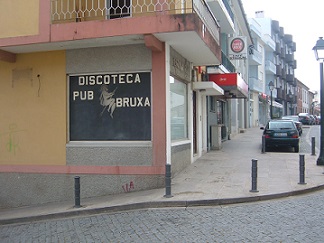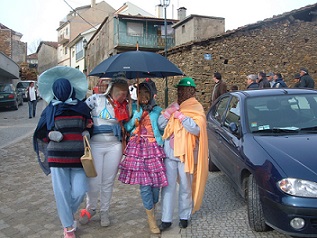A rich and sensitive sociological analysis of the intersections of sex and money, in the contexts of traditional family expectations and the conflicting desire for freedom in a rapidly changing world. Mothers on both sides of the conflict; male bonding and male secrecy.

Graham Douglas
In 2003 the cover of Time magazine featured a story about a small town in Portugal, population 30,000, where a group of local women calling themselves the Mothers of Braganca were demanding, through petitions to the police, the church and in the media, the expulsion of the estimated 300 Brazilian prostitutes working there.
The article led to an exodus of the Brazilian women, mostly to nearby towns in Spain, and the prosecution of a number of brothel owners.
In short, an ideal story for tabloid newspapers, with a ‘happy ending’ for the self-styled ‘Mothers’, instead of the clients.
José Machado Pais is Research Coordinator at the Istituto de Ciencias Sociais, Universidade de Lisboa, author of over 40 books, awarded the Gulbenkian Prize for Social Sciences in 2003.
He was fascinated by the story and spent two years investigating, talking to the sex-workers, the mothers, the clients and the club-owners.
His analysis was published in April as a book Enredos Sexuais, Tradição e Mudança (Sexual networks, Tradition and Change,) by Imprensa de Ciências Sociais, Lisbon, and it provides a rare opportunity to understand prostitution in its social and historical context, instead of through the lens of pre-conceived morality.
In his conclusions he says “Life is a woven cloth in which the threads of cultural legacies are crossed by those of life opportunities and personal discoveries”.

The case of the sex workers and the Maes de Braganca thus becomes a means to study how change impacts on tradition in the field of sexuality, always a place of struggle between the personal and the social, where the social is both inside and outside of the living players.
And the same is true of the parallel economic discourse, where sex, satisfaction, self-expression are traded for the money that can support one family, but at the expense of another.
It is impossible in a short article to do justice to this rich and humane work of sociology, which speaks about sexual relations in a much wider context than one small town in Portugal, and it seemed better to ask the author to respond to some questions. English speaking readers can consult his 2011 article “Mothers, whores and spells: Tradition and change in Portuguese sexuality”, Ethnography, vol. XXII, number 4: 445-465.
Is prostitution globalising?
The flows of immigrants searching for work and new experiences in life, have increased in recent decades.
Those working in prostitution, as in any other economic activity, emigrate seeking opportunities. It is also necessary to consider human trafficking, which pushes some people into prostitution against their will.
In any country there are clients who seek female foreign sex-workers (My research on prostitution has not involved men or transsexuals). In the 19th century, Spanish prostitutes were highly valued in Portugal, and are represented in the novels of Eça de Queiros, like Capital, as the Conchitas and Lolitas. And Portuguese prostitutes also worked in Spain.
With globalisation, this phenomenon has increased, and in Portugal today, some foreign sex-workers come from Eastern Europe, but mostly from Brazil.
Does the power dynamic between client and sex-worker always put the prostitute at a disadvantage?
It varies. Some clients behave violently and force women to do things they don’t want to do, humiliating them. In other cases, the power is on the side of the sex-worker, if they are acting like a therapist or social worker.

There are men who don’t only want sex when they visit a prostitute. They want to talk, to unload about their life, their work, their family. They want to be caressed, to relax. Brazilian sex-workers are generally very affectionate. Some of them have married Portuguese clients.
What do you think about the proposal to criminalize only the clients, in contrast to complete decriminalization?
We must criminalize is what is truly criminal, human trafficking and enforced prostitution, and the exploitation suffered by many sex-workers, who are deprived of their rights. And those who make fortunes from the sex business without paying taxes. There are other things which should be criminalized, but here we move into a moral debate. Probably in a perfect world, prostitution would not exist. But the world is not perfect, and we cannot close our eyes to a situation which won’t end simply because it becomes clandestine. The moral panic about sexual violence has led to a corresponding criminalization of paid-for sex.
Is it possible to offer a radical feminist critique without becoming puritanical?
The symbolic violence suffered by sex workers is still enormous when they are stigmatized for being ‘putas’.
Since Lombroso’s pioneering studies in criminology, it is clear that women sex-workers are viewed from a perspective based on their supposed demonic nature, or characteristics which are supposed to describe their inherent identity, rather than their contingent social status.

On the other hand, their clients tend not to be blamed: they are going to prostitutes to satisfy their basic needs. That is the dominant representation.
Is there a specific prejudice against immigrants working as prostitutes?
More than any others, immigrant sex-workers are viewed according to what they are doing (sex work), and not for what they are: immigrants who are frequently undocumented; in which case they effectively don’t exist as citizens with full rights.
They are simply ‘putas’, with all the pejorative load of that word in the dominant sexual imagination: the woman who offers herself to all men and belongs to none; the woman who exercises a profession without any social status, although it is still considered work by those who do it, often in bad conditions.
Is there any kind of solidarity among the different actors in your book: the mothers, the clients, the sex-workers?
This can happen at certain times if the different groups come into confrontation. For example, when the ‘Maes’ launched their manifesto to expel Brazilian sex-workers from Portugal, the latter felt themselves a target of discrimination; at the same time, amongst themselves they sometimes got into disputes over clients.
On the other hand, when the Maes invoke their status as mothers, they forget that some sex-workers are also mothers, and that they are doing sex-work to support their children.
 As for the clients, there is more solidarity among those who go to brothels in groups. Those who reply to newspaper advertisements are more discrete, afraid of losing their anonymity.
As for the clients, there is more solidarity among those who go to brothels in groups. Those who reply to newspaper advertisements are more discrete, afraid of losing their anonymity.
How should responsible journalism treat the subject of sex work?
The challenge of responsible journalism, guided by ethical principles is no different from that according to which scientific investigations should be carried out. This challenge rests on three principal pillars: The discovery and reporting of hidden, socially important facts; the rigorous description of what is observed; and finally the ability to interpret these situations.
But this is not all: there must also be an enormous human sensitivity to understand the drama and the social stigmas which many people suffer.
Merleau-Ponty wrote a book “Eye and mind”, affirming his admiration for those painters who said that objects also observed them as they were being painted. I also admire those journalists who, in describing certain realities have the ability to make us travel to meet those about whom they are writing.
((Photos provided by Jose Pais and authorised for publication)












.jpg)












